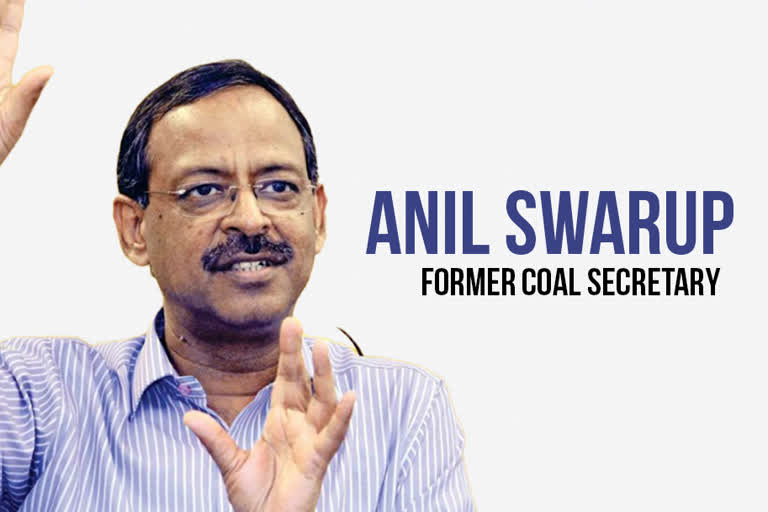New Delhi: Swift rollout at the ground level and support from the state governments will be crucial for the success of the country’s new coal mining policy, says former coal secretary Anil Swarup.
The new coal mining policy announced by finance minister Nirmala Sitharaman on Saturday aims to end the monopoly of the government by permitting private players to carry out commercial mining of coal in the country.
“I think the announcement is well timed. It is a good expression of intention,” said Anil Swarup, former coal secretary during the initial years of Prime Minister Narendra Modi’s first term.
India needs nearly 900-950 million tonnes of coal every year for its thermal power plants, steel and other industries. Nearly one fourth of it, around 215-230 million tonnes is imported despite the fact that the country holds one of the largest reserves of the commodity in the world.
India’s coal import jumped from 191 million tonnes in 2016-17 to over 235 million tonnes in 2018-19, a jump of 23% in just two years.
Read more:Atmanirbhar Bharat Abhiyan vs Other Economic Packages: How India fares in spending
Anil Swarup, who was instrumental in formulating the coal block auction policy during Prime Minister Narendra Modi’s first tenure, blames inability to mine the coal available in the country for rise in coal import.
“Our requirement is only 800-850 million tonnes a year, the reserves we have is around 300 billion tonnes so it’s not the problem of availability of coal, it’s the problem of mining the coal we have,” he explained.
He says the problem can be solved by permitting the commercial mining of the commodity in the country as announced by the finance minister Nirmala Sitharaman but the government will have to swiftly implement this policy at the ground level.
“Commercial mining has to commence and it can commence if the steps are taken to make it happen on the ground,” Mr Swarup told ETV Bharat.
Cooperation by states crucial for success of new policy
The former bureaucrat says the policy cannot be implemented without the cooperation from states.
He says there are three major problems in coal mining, availability of land, environment and forest clearances, and excavation of coal.
“As far as the first issue is concerned, the entire process is in the states, the central government doesn't have much of a role to play so state engagement is extremely important,” noted the former coal secretary.
“There is a need to convey to the state governments the value proposition that through mining of this coal, all the cess and royalty goes to state governments and not a single penny comes to the central government,” Anil Swarup told ETV Bharat adding that all the money flows to states only.
He says this thing cannot be done from Delhi and Central officials will have to visit states on a regular basis to explain the benefits as was done during 2015-16 and 16-17. He says as a result of this outreach programme, the states extended all the cooperation.
Commercial mining will not put an end to coal imports
Former coal secretary also explains that permission to commercial mining of coal will not completely reduce the need for coal imports as some industries are dependent on imports for specific reasons.
“High-grade coking coal is not available in India which is used in steel and other such industries so that coal will still be imported,” he said.
Swarup said some power plants located in coastal areas are also based on the quality of imported coal and they will continue to use imported coals.
Renewable sources not to fully replace thermal power
Prime Minister Narendra Modi’s government has embarked on an extremely ambitious target of installing 175 Gigawatts power generation capacity through clean energy sources such as solar and wind power.
Finance minister Nirmala Sitharaman also announced that out of a target of 175 Gigawatts of renewable power generation capacity, the country has already installed over 80 Gigawatts of renewable power generation capacity.
Anil Swarup, however, explains that clean energy sources will not completely replace thermal power in the next 15-20 years. As per some estimates, 80% of India’s electricity generation was through fossil fuel based power plants and renewable sources accounted for less than 18% of the total installed capacity.
“There are limitations of non-conventional energy, for example solar energy. At least, as of now, the most of the power that is available is available during the day whereas our requirement is in the evening,” he said while explaining the difficulty in switching to non-thermal power in near future.
“There are a lot of issues in terms of non-conventional energy so we will continue to be dependent on thermal power for the next 20 years, on coal based energy and we should work towards that,” he added.
(Article by Krishnanand Tripathi)



